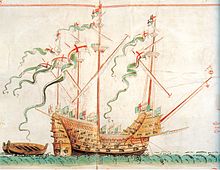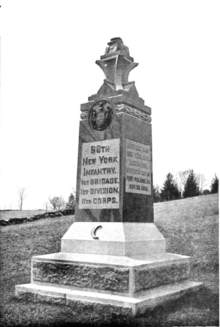Portal:History
The History Portal
History is the systematic study of the past. As an academic discipline, it analyzes and interprets evidence to construct narratives about what happened and explain why it happened, focusing primarily on the human past. Some theorists categorize history as a social science, while others see it as part of the humanities or consider it a hybrid discipline. Similar debates surround the purpose of history, for example, whether its main aim is theoretical, to uncover the truth, or practical, to learn lessons from the past. In a slightly different sense, the term history refers not to an academic field but to the past itself or to individual texts about the past.
History is a broad discipline encompassing many branches. Some focus on specific time periods, such as ancient history, while others concentrate on particular geographic regions, such as the history of Africa. Thematic categorizations include political history, social history, and economic history. Branches associated with specific research methods are quantitative history, comparative history, and oral history.
Historical research relies on primary and secondary sources to reconstruct past events and validate interpretations. Source criticism is used to evaluate these sources, assessing their authenticity, content, and reliability. Historians integrate the perspectives of several individual sources to develop a coherent narrative. Different schools of thought, such as positivism, the Annales school, Marxism, and postmodernism, have distinct methodological implications.
History emerged as a field of inquiry in the ancient period to replace myth-infused narratives, with influential early traditions originating in Greece, China, and later also in the Islamic world. Historical writing evolved throughout the ages and became increasingly professional, particularly during the 19th century, when a rigorous methodology and various academic institutions were established. History is related to many fields, including historiography, philosophy, education, and politics. (Full article...)
Featured picture
Did you know (auto generated)

- ... that in the first Romanian universal chronicle, Mihail Moxa shows "the God of the Old and New Testaments baptizing His stars with the names of Olympian deities"?
- ... that Narita Viliamu Tahega has won 38 medals in international weightlifting competitions, the most in the history of Niue athletics?
- ... that Nakba denial is a form of historical negationism pertaining to the 1948 Palestinian expulsion and flight?
- ... that French historian Patrice Gueniffey called the 2023 film Napoleon a "very anti-French and very pro-British" rewrite of history?
- ... that 104 miners were killed in the 1995 Vaal Reefs mining disaster when a locomotive fell on an elevator, making it history's deadliest elevator disaster?
- ... that the Los Angeles Sparks have the most wins and highest winning percentage in WNBA history?
Alboin (530s – 28 June 572) was king of the Lombards from about 560 until 572. During his reign the Lombards ended their migrations by settling in Italy, the northern part of which Alboin conquered between 569 and 572. He had a lasting effect on Italy and the Pannonian Basin; in the former, his invasion marked the beginning of centuries of Lombard rule, and in the latter, his defeat of the Gepids and his departure from Pannonia ended the dominance there of the Germanic peoples.
The period of Alboin's reign as king in Pannonia following the death of his father, Audoin, was one of confrontation and conflict between the Lombards and their main neighbours, the Gepids. The Gepids initially gained the upper hand, but in 567, thanks to his alliance with the Avars, Alboin inflicted a decisive defeat on his enemies, whose lands the Avars subsequently occupied. The increasing power of his new neighbours caused Alboin some unease however, and he therefore decided to leave Pannonia for Italy, hoping to take advantage of the Byzantine Empire's vulnerability in defending its territory in the wake of the Gothic War. (Full article...)
On this day
February 11: National Foundation Day in Japan (660 BC)
- 1826 – London University, later University College London (pictured), was founded as the first secular university in England.
- 1851 – As part of celebrations marking the separation of Victoria from New South Wales, the inaugural first-class cricket match in Australia began at the Launceston Racecourse in Tasmania.
- 1976 – The Frente de Liberación Homosexual made their final public appearance, shortly before the group's dissolution due to political repression after the Argentine coup d'état.
- 2001 – The computer worm Anna Kournikova, which would affect millions of users worldwide, was released by a 20-year-old Dutch student.
- Thomas Edison (b. 1847)
- Helene Kröller-Müller (b. 1869)
- Keith Holyoake (b. 1904)
- Jennifer Aniston (b. 1969)
Selected quote
Time's glory is to command contending kings,
To unmask falsehood, and bring truth to light.— William Shakespeare, playwright
Related portals
More Did you know...
- ... that the Soviet Tupolev Tu-142 (pictured) maritime patrol aircraft was developed in response to the American UGM-27 Polaris submarine-launched ballistic missile?
- ... that Harry Powers said that watching his victims die was more fun than a brothel?
- ... that the effort put forth by the subject of Miró's 1937 Naked woman climbing a staircase and her heavy limbs are thought to reflect the tragedy of the Spanish Civil War?
- ... that 49% of German military losses happened in the last 10 months of the Second World War in Europe?
- ... that Thomas Edison lost a fortune in his ore-milling company, but "had a hell of a good time spending it"?
- ... that American McCaull Comic Opera Company actress May Yohé, once the owner of the Hope Diamond, died poor?
- ... that Egyptian political cartoonist Ahmad Nady took part in the 2011 Egyptian revolution, drawing cartoons while he demonstrated?
- ... that finds unearthed at the Israelite Tower in Jerusalem's Jewish Quarter attest to the Babylonian sack of the city in 586 BCE?
Topics
Categories

History • By period • By region • By topic • By ethnic group • Historiography • Archaeology • Books • Maps • Images • Magazines • Organizations • Fictional • Museums • Pseudohistory • Stubs • Timelines • Chronology • People • Wikipedia historians
WikiProjects
![]() WikiProject History •
Ancient Near East • Australian History • Classical Greece and Rome • Dacia • Former countries • History of Canada • Chinese history • European history • Heraldry and vexillology • Indian history • Jewish history • Medieval Scotland • Mesoamerica • Military history • Middle Ages • History of Science
WikiProject History •
Ancient Near East • Australian History • Classical Greece and Rome • Dacia • Former countries • History of Canada • Chinese history • European history • Heraldry and vexillology • Indian history • Jewish history • Medieval Scotland • Mesoamerica • Military history • Middle Ages • History of Science
WikiProject Time • Days of the Year • Years
WikiProject Biography • Composers • Political figures • Saints • United States Presidents
Things you can do
 |
Here are some tasks awaiting attention:
|
Associated Wikimedia
The following Wikimedia Foundation sister projects provide more on this subject:
-
Commons
Free media repository -
Wikibooks
Free textbooks and manuals -
Wikidata
Free knowledge base -
Wikinews
Free-content news -
Wikiquote
Collection of quotations -
Wikisource
Free-content library -
Wikiversity
Free learning tools -
Wiktionary
Dictionary and thesaurus
- ^ Dyer (1908), p. 1430; Federal Publishing Company (1908), pp. 100–101; Phisterer (1912), pp. 2673–2693.























































